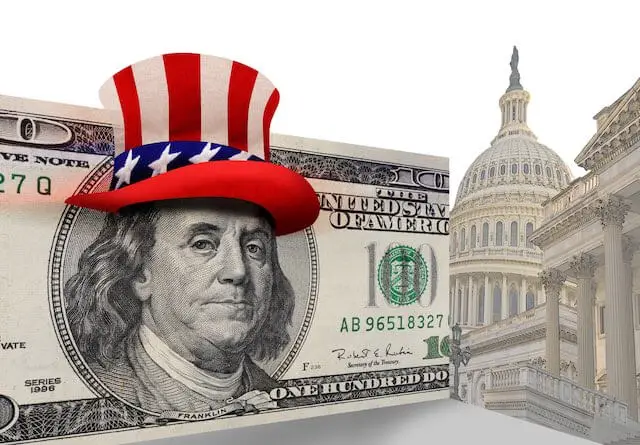As the next budget cycle begins, there are many comments from readers about how their pay and benefits package will change in the coming fiscal year. Inevitably, there are comments about politics and how the party in power impacts federal employee pay and benefits.
Unions Represent Many Federal Employees
Congress largely determines much of the pay and benefits package for the federal workforce. Unions represent a large percentage of the federal workforce. That does not mean that all federal employees are dues-paying members of a union; only that at some point in the past, a majority of those voting in an election to determine union representation, voted in favor of a particular union to serve as their representative. Once a union has been elected to represent a group of employees (the “bargaining unit”), it is rare a union is decertified as a representative.
In effect, unions speak on behalf of many federal employees. While individual employees may disagree with the positions taken by unions, they still are often seen as presenting the opinions of those they represent.
Federal employee unions represent about 28% of the federal workforce. Federal employees are four times more likely to be unionized than private sector workers.
For many elected officials, being elected is a lifetime occupation. Those in Congress receive a pension just as federal employees do. Keeping their job as an elected official appears to often be the primary interest of these officials. Keeping their supporters happy with their tenure is high on the list of important aspects of getting re-elected.
Organizations or individuals that work to boot these officials out of office are likely to be noticed. Federal employee unions are often considered to be strong supporters of Democrats. Is this perception valid?
Political Donations by AFGE
The American Federation of Government Employees (AFGE) is often cited as the largest union representing federal employees.
In the 2018 election cycle, AFGE contributed $4,920,705 during the election cycle according to the Center for Responsive Politics. Here is the breakdown of this spending:
- Contributions to candidates: $1,263,064
- Contributions to Leadership PACs: $110,000
- Contributions to parties: $211,023
- Contributions to 527 committees: $890
- Contributions to outside spending groups: $3,325,728
Most of this money went to Democrats in one form or another. Among direct donations to candidates, about $1.1 million went to Democrats and about $137,000 to Republicans. Most of the money spent went for lobbying efforts on issues of importance to the organization.
Here are the organizations that received the most in contributions from AFGE:
| Voices of the AFGE | $1,416,297 |
| Working America Coalition | $1,034,431 |
| For Our Future | $350,000 |
| Senate Majority PAC | $275,000 |
| House Majority PAC | $250,000 |
| Democratic Senatorial Campaign Cmte | $60,009 |
| Democratic Congressional Campaign Cmte | $30,528 |
| National Republican Congressional Cmte | $30,000 |
| DNC Services Corp | $15,326 |
| Cummings, Elijah E | $15,000 |
Political Contributions from NTEU
Another prominent federal employee unions is the National Treasury Employees Union (NTEU). According the Center for Responsive Politics, NTEU contributed $718,307 in the 2018 election cycle and these donations break down as follows:
- Contributions to candidates: $602,863
- Contributions to Leadership PACs: $18,530
- Contributions to parties: $96,914
- Contributions to 527 committees: $0
- Contributions to outside spending groups: $0
Here are the top recipients of the union’s largesse. All are related to supporting Democrats.
| DNC Services Corp | $30,510 | $510 | $30,000 |
| Democratic Congressional Campaign Cmte | $30,055 | $55 | $30,000 |
| Democratic Senatorial Campaign Cmte | $30,000 | $0 | $30,000 |
| Casey, Bob | $12,500 | $0 | $12,500 |
| McCaskill, Claire | $10,250 | $250 | $10,000 |
| Baldwin, Tammy | $10,200 | $2,200 | $8,000 |
| Donnelly, Joe | $10,000 | $0 | $10,000 |
| Sinema, Kyrsten | $10,000 | $0 | $10,000 |
| Brown, Sherrod | $9,000 | $0 | $9,000 |
| Heitkamp, Heidi | $8,625 | $125 | $8,500 |
$527,343 was given to Democrats. $66,000 was donated to Republicans. In all, 204 Democrats received donations and and 27 Republicans received money from NTEU.
Summary
The perception that federal employee unions generally support Democrats is obviously true. No doubt, this impacts the public perception that the federal workforce is a politically neutral, professional workforce that works to implement the policies of elected officials without regard to political affiliation.
To the extent that Members of Congress consider this during the budget process, it generally results in more Democrats supporting higher pay and benefits for federal employees.



